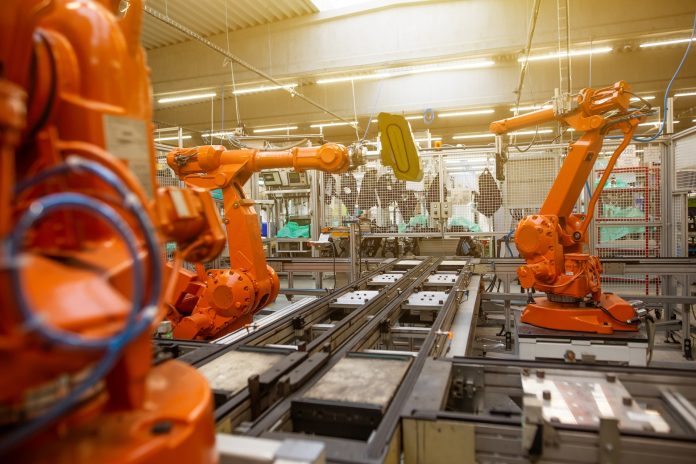Large-scale global companies are now realising that their reaction to the age of AI and automation must be Darwinian: adapt properly, or competitor businesses incorporating automation technology will soon outcompete and replace you.
So, why is there such a rush to use automation tools now? Well, the simple answer is that it is because there is a long list of ways automation can make global businesses more efficient, including
- Quickening HR and recruitment
- Skyrocketing productivity levels by speeding up production processes across the board
- Rapid data analysis and management
- Increasing sales leads
- Removing human error
- Taking care of mundane tasks to allow employees to focus on strategy and more meaningful tasks
- Automation platforms are making project management and collaboration between different departments easier
Big global companies always strive to adapt their business practices and strategies according to the stance of decision-makers in governments worldwide. An analysis of parliamentary records discussing AI in 81 countries in the Artificial Intelligence Index Report 2023 carried out by Stanford University found that mentions of AI in global legislative proceedings have increased nearly 6.5 times since 2016.
Let’s look at some examples of global companies embracing the use of automation tools in a bid to further raise their efficiency levels.
Amazon
Amazon is the largest online retailer, and its domination of the market shows no sign of stopping anytime soon. It operates over 175 fulfilment centres worldwide covering more than 150 million square feet of space.
Anything that helps to improve the efficiency of the fulfilment, packaging, and sorting processes going on at their warehouses is crucial to increasing the profits they make. The company has its own ‘Amazon Robotics’ department constantly researching AI solutions. As a result, at large warehouses, they now have automated robots that move and store items, and pick and pack orders for shipment.
Tesla
Tesla manufactures all their own car parts from scratch, unlike other car companies that source their components from elsewhere. With their charismatic owner Elon Musk, Tesla is making no bones about their desire to use AI and robotic automation to the fullest to enhance the efficiency of their manufacturing production and output. The company still managed to make a revenue of $23.33 billion in Q1 of 2023, despite the world experiencing economic times.
The Freemont Tesla Factory in California is home to hundreds of robots carrying out the broadest range of tasks, from car assembly to paintwork, and all manner of delicate manufacturing tasks. The recently launched ‘Godzilla’ robot at the Gigafactory Berlin is now the largest industrial robot in the world.
Granted, Tesla spends a fair few bucks on R&D to create these robots that help them with car production processes, but the result is lower capital expenditure and more efficient production lines.
Other car manufacturers need to follow suit and invest in automation and educate managers and the wider workforce on how it works best. Ward CNC is an example of a CNC metalwork tool supplier trusted by many automotive manufacturers in the UK that fully embraces automation.
Unilever
Unilever recruits more than new 30,000 staff every year and processes just under 2 million job applications, and all this can be quite a lengthy ordeal. But as the saying goes, time is money for businesses. Therefore, Unilever decided to be proactive and slash recruitment times by using machine learning algorithms and natural language processing to analyse speech patterns during virtual interviews.
You can fully expect companies with large global workforces to continue to try and get all they can out of AI to iron out any recruitment inefficiencies affecting their profits.
Netflix
Netflix is the most popular streaming platform in the world, with around 232.5 million paid subscribers worldwide in the first quarter of 2023. This, therefore, means there is a great deal of stress and demand put upon their IT systems.
The company has got their clever software QA testing team to come up with automated solutions to system issues. They have put in place a customer-centred test automation infrastructure to help ensure an error-free, smooth user experience.
HSBC
In the past, people working in banks used to spend their days sifting through paperwork. In 2023, banks are rapidly automating their manual processes to try and quicken the speed and efficiency of staff checking through invoices, insurance documents, payments, and so on.
HSBC is currently using IBM’s optical character recognition and robotics technology to automatically review documents. This increases accuracy and frees up staff’s time to concentrate on other important tasks.
Automation tools, robotics, and AI technology are going absolutely nowhere and are here to stay for the long term. A fair share of innovative large global companies have already cottoned onto this transformative trend and are dedicating their time and resources to it accordingly. Ones that have been a bit slower to adapt to automated technology and are failing to understand how it can help to drive up business efficiency may find themselves getting left behind.



 Bitcoin
Bitcoin  Ethereum
Ethereum  Tether
Tether  XRP
XRP  Solana
Solana  USDC
USDC  TRON
TRON  Cardano
Cardano  Lido Staked Ether
Lido Staked Ether  Avalanche
Avalanche  Toncoin
Toncoin